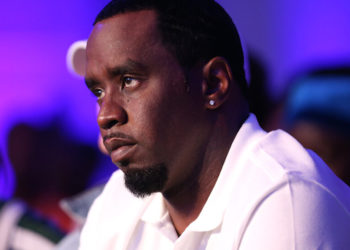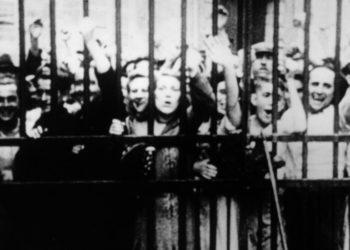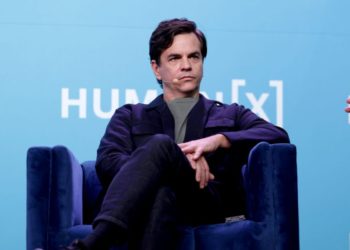Zohran Mamdani, who campaigned for mayor on the theme of making New York City more affordable, said in a major national television interview that during a time of rising inequality, “I don’t think we should have billionaires.”
Mr. Mamdani, the likely winner of the Democratic primary for mayor of New York, said in an appearance on “Meet the Press” on Sunday that more equality is needed across the city, state and country, and that he looked forward to working “with everyone, including billionaires, to make a city that is fairer for all of them.”
At the same time, Mr. Mamdani, a democratic socialist, asserted that he is not a communist, a response to an attack from President Trump.
“I have already had to start to get used to the fact that the president will talk about how I look, how I sound, where I’m from, who I am — ultimately because he wants to distract from what I’m fighting for,” Mr. Mamdani said.
But one question he continued to sidestep was whether he would denounce the phrase “globalize the intifada,” after he declined to condemn it during a podcast interview before the primary.
The slogan is a rallying cry for liberation among Palestinians and their supporters, but many Jews consider it a call to violence invoking resistance movements of the 1980s and 2000s.
“Do you condemn that phrase, “globalize the intifada?’” Kristen Welker, the moderator of the show, asked Mr. Mamdani during the interview.
“That’s not language that I use,” he said.
When pressed, he said that many Jewish New Yorkers had shared concerns with him about antisemitism. “And I’ve heard those fears, and I’ve had those conversations, and ultimately, they are part and parcel of why in my campaign, I’ve put forward a commitment to increase funding for anti-hat- crime programming by 800 percent,” he said.
But, Mr. Mamdani added, “I don’t believe that the role of the mayor is to police speech.”
Mr. Mamdani, 33, won 43.5 percent of the primary vote in the first round of counting on June 24, besting former Gov. Andrew M. Cuomo, who received 36.4 percent. He benefited from a surge in young voters, immigrants and people who had rarely voted before.
His victory is likely to become official on Tuesday, when the second round of ranked-choice votes are tabulated, and he is expected to then face a bruising general election in November. Mr. Cuomo will remain on the ballot after petitioning for a third-party line, though it is not clear if he will campaign, and Mayor Eric Adams is running as an independent. Also running are Curtis Sliwa, the Republican founder of the Guardian Angels, and Jim Walden, a lawyer also running as an independent.
Mr. Mamdani said on “Meet the Press” that he was committed to keeping New York’s sanctuary city status. He also defended his proposals for a rent freeze on rent-stabilized apartments, free buses, a $30 minimum wage and a city-owned grocery store in each borough.
He noted that the five grocery stores would cost $60 million in a city budget of nearly $116 billion, and said that his vision was “in line with the scale of the crisis in the city.”
To see his plans through, Mr. Mamdani has proposed a 2 percent tax on New Yorkers who earn $1 million or more. But he would need the support of Gov. Kathy Hochul, a Democrat, who has said she would not sign off on tax increases.
Since the primary, Mr. Mamdani has been consolidating endorsements from high-profile Democrats and organizations that previously backed his opponents. The powerful hotel workers’ union and the union that represents doormen and other building workers, which had supported Mr. Cuomo, have switched their endorsements to Mr. Mamdani. Both organizations, along with a third union, the New York State Nurses Association, promised to fund efforts to help him win in November.
Senator Elizabeth Warren, a Massachusetts Democrat, also endorsed Mr. Mamdani. But many leading Democrats, while congratulating him on his stunning primary showing, have not yet done so. Representative Hakeem Jeffries, a Brooklyn Democrat who is the House minority leader, said on ABC’s “This Week” on Sunday that he did not know Mr. Mamdani well and had never had a substantive conversation with him.
He said he would be sitting down with him for such a discussion but added, with regard to Mr. Mamdani’s affordability proposals, “This country is far too expensive for working-class Americans, for middle-class Americans, for all those who aspire to be part of the middle class.”
The night before the interview, Mr. Mamdani made a surprise appearance at the Beacon Theater in Manhattan, where the comedian Ramy Youssef was appearing. He joined Mahmoud Khalil, the Columbia student who was recently released from ICE detention in Louisiana and who was also a surprise guest.
Mr. Khalil told Mr. Mamdani that he wanted his infant son to grow up in a city where a man like Mr. Mamdani could be mayor.
“My hope is that your son will grow up in a city where he is free to speak,” the candidate said.
Chelsia Rose Marcius is a criminal justice reporter for The Times, covering the New York Police Department.
The post We Shouldn’t Have Billionaires, Mamdani Says appeared first on New York Times.




